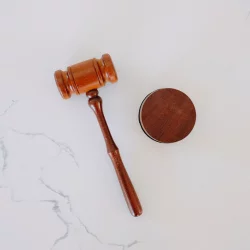What to Do If You’re Pulled Over for DUI
If you've been pulled over on the suspicion that you're intoxicated with alcohol or other substances, you'll be in a precarious situation. If you say the wrong thing or make the wrong move, you could make things much worse for yourself.
So what exactly should you do if you're pulled over for DUI?
Three Major Caveats
Before we get into the details here, there are some important caveats to keep in mind:
- Every state is different. Each state has different laws related to driving while intoxicated – and there are sometimes different charges with different names that apply in various contexts. It’s all very confusing, especially if you’re not familiar with these types of laws from the outset. While most of the advice we're about to dispense is universal, it's important to remember that every state handles things differently.
- Every situation is different. It's also important to recognize that every situation is different. How you handle yourself when you've had way too much to drink and you're already driving with a suspended license should be different than how you handle yourself when you haven't been drinking at all and you have a clean record.
- For legal advice, you need a lawyer. None of the guidance in this article is meant to constitute legal advice. For that, you need to have a criminal defense lawyer.
What to Do If You’re Pulled Over for DUI
These are some of the most important strategies to follow if you've been pulled over for DUI:
- Get a lawyer and follow their guidance. Ideally, you'll talk to a lawyer as soon as possible. You may not be able to find a lawyer or call your lawyer in the middle of a routine traffic stop, but it's a good idea to have a lawyer on call – and it's definitely a good idea to get a lawyer if you're arrested or taken to the police station for questioning. A lawyer will help you understand your legal rights, ensure you're treated fairly, and give you advice on how to handle yourself in this situation.
- Pull over safely and completely. Pull over for police officers as quickly, smoothly, and safely as possible. Once the vehicle is stopped and in a safe position, remove the keys from the ignition and put your hands on the steering wheel.
- Move slowly and deliberately. Police officers will likely approach your vehicle and ask you for your license and registration. Throughout all these interactions, move slowly and deliberately to avoid demonstrating any behaviors the officer could perceive as suspicious or risky. Announce what you're doing before you do it.
- Be compliant and polite. Throughout the interaction, remain compliant and polite. The police officer should explain to you why you've been pulled over, and if they don't, you can ask them. If the police officer asks you to exit the vehicle, do so. If they ask for your paperwork, provide it or explain why you don't have it. The easier you are to work with, the more likely the officer will be to treat you fairly and reasonably.
- Avoid answering incriminating questions. Remember that you have the right to remain silent in most contexts. Accordingly, avoid answering any questions that could possibly be incriminating. For example, if the officer asks you how much you had to drink tonight, don't answer the question. You'll likely be tempted to come up with a figure that seems reasonable, but the best course of action is to disengage with the question.
- Do not lie. Furthermore, it's important that you do not lie. Making inconsistent statements is going to make your position much worse in almost every conceivable branch of reality. Again, you're usually better off not answering questions, but if you do answer them, it's better to tell the truth than to lie.
- Consider the tests available to you. In many cases, police officers will ask you to take sobriety tests to determine your level of intoxication. It's important to consider these very carefully and make a thoughtful decision for how to proceed. For example, a police officer may ask you to take a field sobriety test, which will evaluate your coordination, balance, and subjective level of sobriety. These are not legally mandatory, but refusing a field sobriety test could prompt the officer to take you back to the police station for a definitively reliable chemical test – and you might end up with a suspended license for refusing the test. A handheld breathalyzer test given on the side of the road isn't very reliable, but at the same time, its unreliability could be easily attacked if you're in a position to give a legal defense in the future. In most areas, you'll be required to submit to some kind of testing no matter what, assuming the officer feels it is appropriate. That said, the question of which tests to take and when to comply is a complicated one, without an easy answer. Too much depends on the specific laws in your area, your level of intoxication, and the nature of your position.
- Take notes. Try to remember as many details as possible, starting from the moment you're pulled over. Once you have the opportunity, take copious notes on what happened. If you were mistreated or if your case was handled inappropriately in any way, it could work in your favor.
Being pulled over for DUI is scary, even if you haven't been drinking. But if you're willing to engage with officers in a calm, controlled manner, and you avoid egregious offenses that can make this situation worse, you can minimize the possibility of devastating consequences.
More to Read:
Previous Posts:



